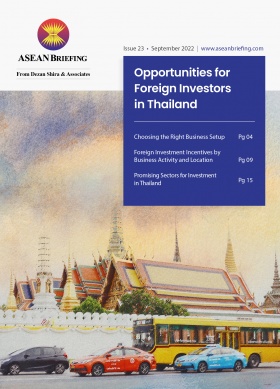Malaysia Introduces Electronic Option for the Renewal of Employment Passes
Malaysia will introduce the option for Employment Pass holders to renew their permits electronically from December 1, 2022. The move aims to make the renewal process more efficient while also enabling foreign applicants to keep their passports during the renewal.
Malaysia will introduce an option to renew Employment Passes (EP) electronically from December 1, 2022. This implementation is only applicable for the renewal of EPs and for their dependents under the Expatriate Services Division (ESD).
The ESD is under the Immigration Department of Malaysia. Malaysian companies intending to hire expatriates with a work permit must first register with the ESD where upon approval, they can then submit individual applications for the relevant work permit.
The new e-pass will replace the traditional sticker affixed to the foreign national’s passport when they renew their Employment Pass.The government also hopes to make the renewal process easier and more efficient through the e-pass besides enabling foreign nationals to keep their passport during the renewal process.
What is the renewal process?
It will be the duty of the applicant’s sponsor company to sign in to the ESD website and fill in the necessary data for the e-pass. There is also a renewal fee that must be paid. The e-pass is then generated by the ESD online system usually within one day after payment.
The e-pass can then be printed and shown to immigration officials when entering or leaving Malaysia.
The e-pass does not apply to the following scenarios:
- For new EP applicants and new dependent passes;
- New or the renewal of professional visit passes; and
- Any change to the passports – the e-pass applies to the same passports used when applying for the EP.
What is a Malaysian Employment Pass?
An EP enables foreign workers to take up employment under a contract of service with an organization in Malaysia. This pass is issued to employees with specific skills, usually for technical or managerial jobs.
The employment pass is classified into three categories:
Category I
Applicants must receive a monthly base salary of 10,000 ringgit (US$2,410) or more and have an employment contract of up to 60 months.
Applicants may bring eligible dependent(s) and/or foreign domestic helper(s), subject to approval, and the employment pass may be renewed.
Category II
Applicants must receive a monthly base salary of above 5,000 ringgit (US$1,200) and under 10,000 ringgit (US$2,410) and have an employment contract with a maximum validity period of 23 months. The employment pass may be renewed.
Applicants can bring eligible dependent(s) and/or foreign domestic helper(s), subject to approval.
Category III
Employment pass category III is available to foreign nationals working on contracts of 12 months or less and with monthly salaries ranging from 3000 ringgit (US$723) and under 5,000 ringgit (US$1,200). The employment pass may be renewed up to two times. Applicants are not allowed to bring dependent(s) and/or foreign domestic helper(s).
Requirements to apply for an Employment Pass
It is the responsibility of the employer to apply for an employment pass on behalf of the foreign employee.
The employer must first apply for an ‘expatriate post’ at one of the following government agencies:
- Multimedia Development Corporation – for jobs in the technology sector;
- Malaysia Industrial Development Authority – for manufacturing and services sectors;
- Malaysian Biotechnology Corporation – for jobs in the biotechnology sector;
- Central Bank of Malaysia – for sectors of finance, banking, and insurance;
- Securities Commission – for the securities and futures market sectors; and
- Expatriate Committee – for sectors that are not under the above.
Once the expatriate post has been approved, the employer can then submit the employment pass application to the Immigration Department of Malaysia.
- The employer will need to submit the following documents to the Immigration Department;
- The Employment Pass application form;
- Copy of passport;
- Letter of approval from the relevant authority body;
- Employment contract;
- CV and education certificates; and
- The employer’s company profile.
Related Reading
- Crash Course on Starting a Business in Malaysia
- Malaysia Issues Digital Nomad Visa: What are the Requirements?
- Malaysia Launches New Social Visit Pass
About Us
ASEAN Briefing is produced by Dezan Shira & Associates. The firm assists foreign investors throughout Asia and maintains offices throughout ASEAN, including in Singapore, Hanoi, Ho Chi Minh City, and Da Nang in Vietnam, Munich, and Esen in Germany, Boston, and Salt Lake City in the United States, Milan, Conegliano, and Udine in Italy, in addition to Jakarta, and Batam in Indonesia. We also have partner firms in Malaysia, Bangladesh, the Philippines, and Thailand as well as our practices in China and India. Please contact us at asia@dezshira.com or visit our website at www.dezshira.com.







